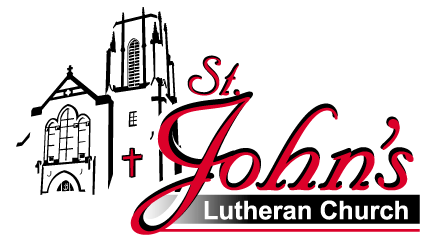136. Jesus before the Jewish Ruling Council
Matthew 26:59–68 (Mark 14:55-65; Luke 22:63–71)
After the High Council had assembled in its meeting room, which was in the residence of the High Priest Caiaphas, and the imprisoned Jesus had been brought before it, the trial began immediately. According to the law (Dt 17:6), every case should be decided by the testimony of two or three witnesses. The Council wanted to maintain the appearance of legality also here. But a bad case only becomes worse if one tries to make it look good. So they first sought testimony against Jesus. Many false witnesses came forward, but their testimonies did not agree. Finally, two witnesses came forward and brought forth a statement that Jesus had made several years before in Jerusalem, and which, as it was presented, seemed to imply a crime. After the first cleansing of the temple, Jesus said: “Destroy this temple, and in three days I will raise it up” (Jn 2:19 ff.), referring to the temple of his body and prophesying his death and resurrection. One witness twisted these words to say that Jesus had said that he could, or that he would destroy the temple of God, namely the stone temple in Jerusalem, and thus spoke blasphemous words against this holy place. The other witness admitted that Jesus had spoken of a temple that was not made with human hands. So even these witnesses contradicted each other. The Lord did not reply a word to these foolish, lying accusations. Everything that the enemies of Christ bring forward and object against Christ and the religion of Christ, such as that Christianity is a harmful religion, that Christians are harmful people, is false testimony, a web of lies, full of inconsistencies and contradictions, and does not require serious refutation.
Since they could not get to Jesus with testimony, they tried another way, trying to get him to say something that would make him a criminal, and they put the question to him whether he was the Christ. But he said to them, “If I tell you, you will not believe.” I have told you often enough. “But if I ask, you do not answer, and yet you do not let me go.” If I ask you whether what I say about myself is not in accordance with the Scripture, you are silent, and so all further talk is futile. Then the chairman of the high council, the high priest Caiaphas, demanded an oath from him, that he should explain briefly and succinctly and swear that he was really Christ, the Son of the Most Blessed One. And Jesus answered: “You’ve said it. I am.” But he added: “From now on you will see the Son of Man sitting at the right hand of power, and coming on the clouds of heaven.” When these judges of his see him again, they will see him as their judge. And how all the enemies of Christ will tremble and shake when this very Christ whom they have rejected comes to judge them and calls them to account! Then the high priest tore his garments and said: “He has blasphemed God; what further testimony do we need?” He made a tear in his garment in front of his chest as a sign of sadness and indignation at this supposed blasphemy. What horrible hypocrisy when a bitter enemy of the truth still behaves piously, as if he were seeking God’s glory! The verdict was immediately decided. They all condemned him and said: “He is worthy of death.” Thus the Jewish people, through their highest authority, condemned their Messiah to death. And this was basically because Christ was the Son of God and, as the Son of God, had told them the truth, punished their evil works, and exposed their hypocrisy and pretense. If the world, and especially the pious world, the false church, still rejects and condemns Christ, Christ’s word, the reason for this is that Christ is the Son of God, his Word is God’s Word, and because God’s Son, God’s Word, exposes and condemns the wickedness of their hearts and puts to shame all their glory and pride. But we thank our Lord Jesus Christ that he allowed this judgment of blood to be carried out and that he finally testified and solemnly, formally swore that he is the Son of the highly-praised One. Now we know that we are reconciled to God through the death of his son. The blood of Jesus Christ, the Son of God, cleanses us from all sin.
Now Jesus was regarded as someone who should be cut off from the people (Lev 24:16). And so some of the members of the council spat in his face. But the rough servants who held him vented their anger on him, beat him with their fists, gave him slaps on the cheek, and mocked and blasphemed, covering his face and asking him: “Prophesy to us, Christ, who is it that struck you?” That was the beginning of Christ’s torture. And if today the unbelieving world, the loose crowd of scoffers, still mocks the prophecy and the Word of Christ or vents its anger on Christ’s disciples, that is only a continuation of Christ’s agony. But we thank our Lord Christ that he bore such torment patiently, without protest. For his patience is our salvation.
